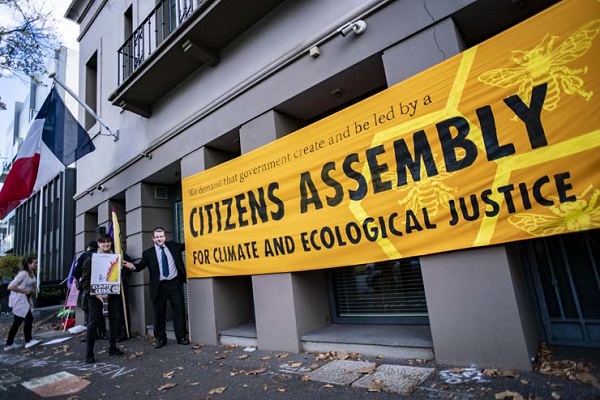4.3 Deliberating

In his article on climate crisis as a driver for pedagogical renewal in higher education, McCowan (2023, p. 944) argues for pedagogies of deliberation, as a forum for ‘Listening to the views of others, communicating our own views, and through the interaction of the two, revising those views’ as an essential participatory process in tackling complex, unpredictable problems. There are many examples of deliberative pedagogies, most notably the ‘flipped classroom’, but there is also a rise in larger scale, mass citizen deliberative approaches which can offer a different perspective on what deliberative pedagogies could look like.
The idea of citizens’ assemblies is gathering pace in politics around the world, with recent examples being the establishment of a permanent people’s assembly as part of Paris’s governance, Ireland’s assemblies on abortion, Scotland’s assembly on climate and recently, the RSPB with other partner organisation created the ‘People’s Assembly for Nature’. These examples are often held up as a form of rapid, just, democracy in action, but are often highly pedagogic, developing greater understandings of issues. They also create opportunities to synthesise different evidence and to think about individual and collective action that can be taken as a result.
Activity 3.3 Processes of participation
![]() Watch the following two videos:
Watch the following two videos:
 Explore
Explore
Explore more about citizens assemblies by spending some time exploring this website for key messages and resources that may help you establish the idea of citizens’ assemblies within your practice or context.
4.2 Curating
